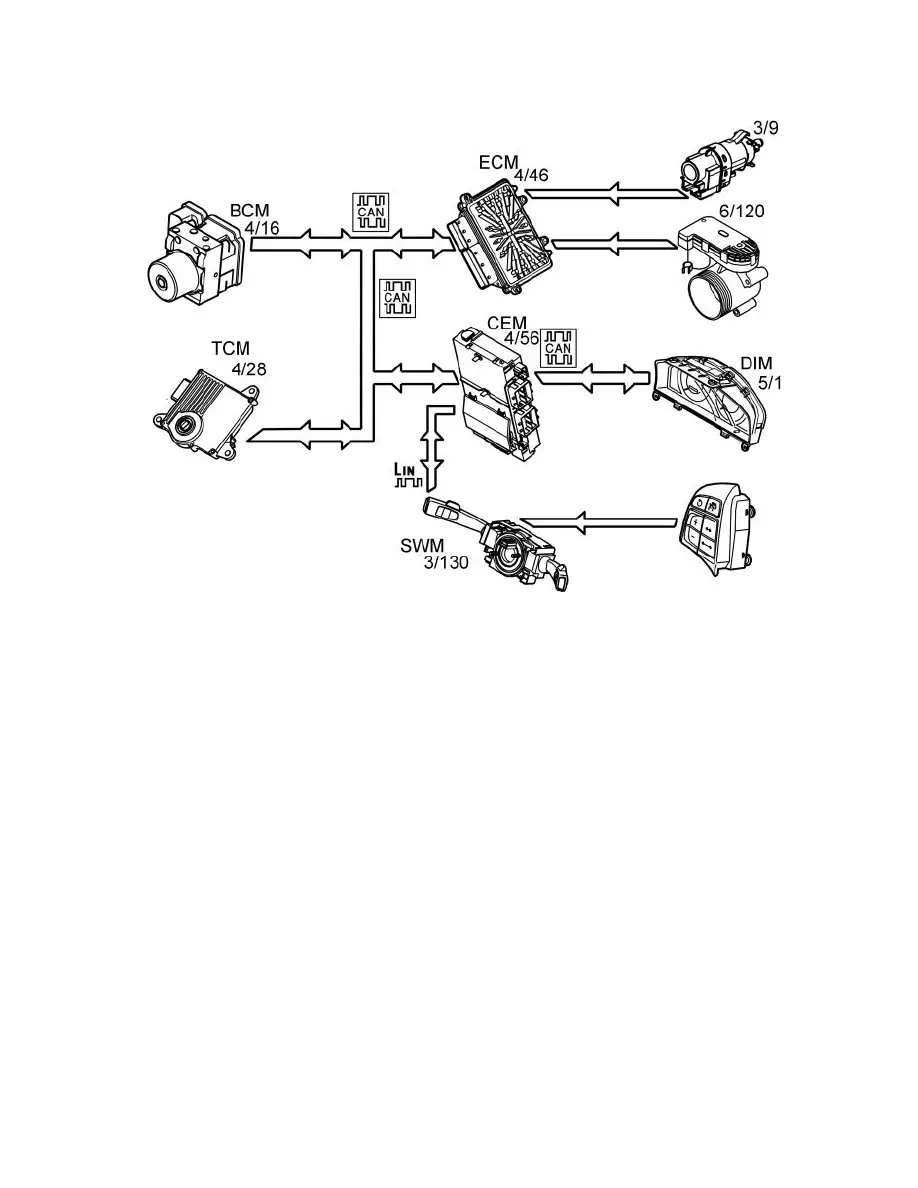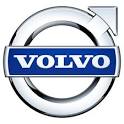S80 AWD V8-4.4L VIN 85 B8444S (2008)

number of other parameters, for example, vehicle speed signal and load signal.
Regulating cruise control (does not apply to adaptive cruise control)
The following components are used when regulating the cruise control:
-
engine control module (ECM) (4/46)
-
the steering wheel module (SWM) (3/130) (cruise control buttons), communicates with the central electronic module (CEM) via LIN
communication.
-
brake control module (BCM) (4/16) (brake pedal status, speed signal)
-
driver information module (DIM) (5/1) (cruise control lamp)
-
transmission control module (TCM) (4/28) (cruise control active/not active, gear selector in position "P" or "N")
-
electronic throttle unit (6/120)
-
stop lamp switch (3/9).
To activate cruise control the function must be switched on using the "CRUISE" button. A lamp lights up in the driver information module (DIM).
Cruise control is then in standby mode.
The driver activates the function by pressing the SET+ or SET- button. A message is then transmitted via LIN communication to the central electronic
module (CEM), which then transmits the message on via the Controller area network (CAN) to the engine control module (ECM).
The engine control module (ECM) controls the throttle angle so that a constant speed is maintained using the vehicle speed signal from the Brake
Control Module (BCM). The transmission control module (TCM) also receives a message indicating that cruise control is active via the Controller area
network (CAN), so that the transmission follows certain shifting patterns when the cruise control is active.
If the accelerator pedal (AP) is depressed the vehicle speed increases as normal and then resumes the stored value when the driver releases the
accelerator pedal (AP) again.
The engine control module (ECM) continually stores the speed that is selected using the steering wheel buttons. The stored speed is displayed in the
driver information module (DIM).
If the cruise control is switched off, for example, when the driver depresses the brake pedal, the system returns to standby mode. The stored speed is then
displayed in the driver information module (DIM) between brackets. The stored speed is resumed by pressing the "RESUME" button. The brackets
around the selected speed disappear from the driver information module (DIM).
Cruise control cannot be activated at speeds below 30 km/h.
The cruise control returns to standby mode if:
-
the driver depresses the brake pedal
-
the driver presses the "CRUISE" button on the steering wheel
-
the driver presses the "0" button on the steering wheel
-
the gear selector is in position "P" or "N"
-
if the speed deviates too much from the set value, for example, by the accelerator pedal (AP) being depressed for a longer time.
-
certain diagnostic trouble codes (DTCs), which block continued activation, are stored. (For further information, see the diagnostic trouble code
